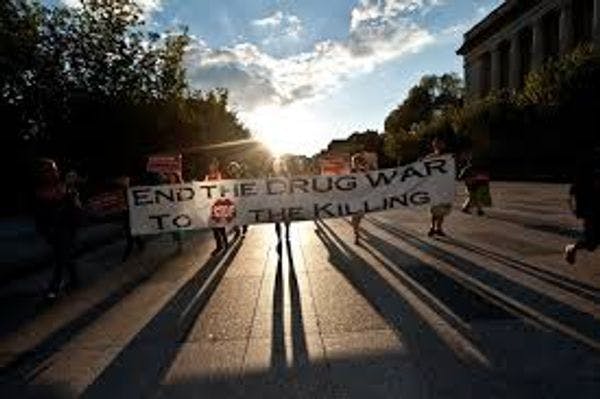Latin American governments call for an end to the drug war at the United Nations
Vienne, 13th of February of 2014 -- Governments made an unprecedented call for an end to the drug war at the United Nations today.
"The costs of the drug war are not only economic, but also human, because people have been sacrificed in our actions to tackle the drug problem. With the moral authority that we have after having implemented the recommendations of the international community for years, we call for more effective ways to achieve the objectives stated in international agreements", said the Minister of Justice of the Colombian delegation, Gómez Mendez.
"Since 1961, due to a rigid and narrow interpretation of the UN drug conventions, there has been one single means to control the use of cannabis – criminalisation has been imposed" - said Diego Canepa, representative of the delegation of Uruguay - "We have don't have a magic recipe, but we are trying to find a way out and snatch the market away from traffickers. We have a responsibility to represent our citizens, and not to take the challenge and act accordingly would be an unforgivable error."
These calls were echoed by the Mexican delegation, which said that health policies should be encouraged instead of the criminalisation of drug use and that a thorough review of the international drug strategies is required. The delegation of Guatemala highlighted that “the revision of the UN drug conventions is needed and that the Latin American hemispheric debate is ongoing” and the Ecuadorian government said that “the failure of present drug policies has generated questions from governments, policy-makers, intellectuals and civil society organisations from across the region. Many voices are calling for a change in paradigm in the understanding and approach to the drug phenomenon.”
This historic stand for reform took place at a meeting of the UN Commission on Narcotic Drugs (CND)—the lead policymaking body for international drug control—which is happening in Vienna from 13-21 March.
The preparations for this year’s CND were fraught with discord as national reforms are challenging hardline drug policies. Governments that favour harsh criminal justice policies are trying to push back against historic cannabis reforms in the United States and Uruguay.
Joanne Csete, Deputy Director of the Open Society Global Drug Policy Program said, “The remaking of the system is happening before our eyes. For decades governments used the United Nations to push a one-size-fits-all approach. The dissent we’re seeing today is the deconstruction of the international drug war."
Ann Fordham, Executive Director of the International Drug Policy Consortium, said, “This is the beginning of a serious re-think on drug control. Billions of dollars have been wasted, millions of people have been criminalised, thousands of lives have been lost and the drug cartels carry on getting richer. Given this reality, the charade of a global consensus on drugs is now unacceptable, and some governments have found the courage to speak out.’
Keep up-to-date with drug policy developments by subscribing to the IDPC Monthly Alert.
